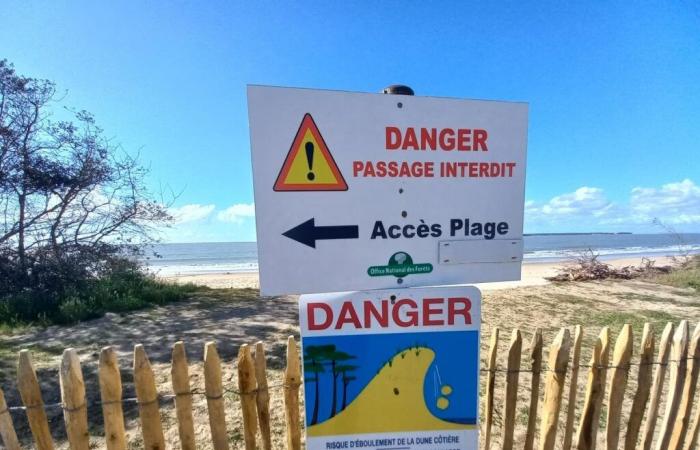Dor a decade already, the tide has turned. The dykes, the riprap and the large developments which turn the concrete mixers are no longer very popular to stop the retreat of the coastline, the land/sea limit. With exceptions and an issue to be defended at all costs. To illustrate this doctrine, Agnès Pannier-Runacher, the Minister of Ecological Transition, was this November 7 in Blainville-sur-Mer (Manche), where she revealed the winners of a call for projects launched last April and entitled “ Nature-based solutions to adapt coastal territories to erosion.”
Endowed with 2.8 million euros, the system promotes choices which aim to slow down the phenomenon and rethink the development of the coastline by the renaturation of artificialized spaces or by fixing dunes using “soft” and / or natural. Twelve winners will share the windfall. There were 27 applications. Three projects were rewarded in New Aquitaine: two in Charente-Maritime and one in the Basque Country.
A reef of flat oysters
The first is carried out by the community of communes of the island of Ré for the Gros Jonc beach, in Portes-en-Ré. This involves the restoration of a flat oyster reef. The second was filed by the municipality of La Tremblade for the Galon d'Or and Embellie beaches, erosion “hot spots” facing the Pointe de Gatseau, on the island of Oléron. , also hard hit. There, we decided to reduce the footprint of a parking lot, with dewatering and renaturation of the site, and to provide access with ganivelles (wooden stakes). Also on the program, the creation of a pedestrian promenade between the two beaches, the establishment of an educational route and tide pools and the relocation of the Vélodyssée, the coastal cycle route.
In the south, it is the urban community of the Basque Country which was awarded an award for a project which concerns Saint-Jean-de-Luz and Hendaye. On the menu, interventions on cliff sites, with revegetation in Saint-Jean-de-Luz and defense to avoid trampling in Hendaye.
“These soft solutions are often more efficient and resilient, they are also less expensive than works designed by humans,” commented Agnès Pannier-Runacher. The minister did not hide the fact that coastal retreat remained an open project. “In places that are remote or threatened by submersion, we must determine how to relocate the houses concerned, with what money and with what sharing of costs,” she said. On this point, parliamentarians are not remaining inactive. Sophie Panonacle, the deputy (Together) for the Arcachon basin, has been proposing for several years the establishment of a fund dedicated to erosion and funded by a tax on real estate transactions and on short-term tourist rental platforms . Will the system be included in the 2025 Finance Law?






